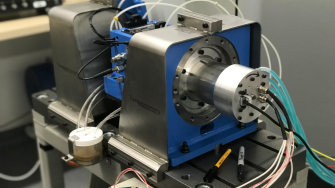Digital Grid at UNSW
Striving to deliver a power system that can support 100% renewable generation by 2050.
Striving to deliver a power system that can support 100% renewable generation by 2050.

UNSW is striving to deliver a future power system that can support 100% renewable generation and the electrification of almost everything by 2050.
Our focus is on decarbonising energy systems and industry through technology, people and infrastructure. We are developing and commercialising the technology required to displace centralised fossil-fuel generators with energy equity in mind. To support this, we are educating and enabling a future workforce who will be capable to engineer and sustain the future grid. To achieve this goal, we are focused on research and development in four key areas:
We are approaching a situation where 40% of total power generated will be from inverter-based generators. This scale of inverter penetration is globally untested and the ability of inverters to sustain load across large electricity grid is unclear, particularly in the case of anomalous or fault conditions. We need a coordinated research effort to closely examine how to operate these inverter-based resources when they are scaled up to the levels projected in the Australian Energy Market Operator’s Integrated System Plan. UNSW hosts the largest Real-time Digital Simulation (RTS) Laboratory in Australia. Real-time digital power system simulation provides an accurate, reliable and cost-effective method to simulate, verify and experiment with multiple technologies, functions, operations and control from individual components to large-scale power systems. UNSW’s RTS and power electronics laboratories are unique assets that could be leveraged by industry to develop the tactics determining the success of Australia’s energy transition plan.
